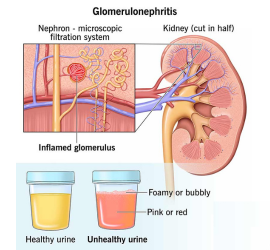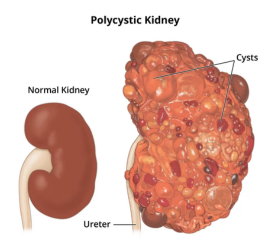
Hypertension (high blood pressure) is when the pressure in your blood vessels is too high (140/90 mmHg or higher). It is common but can be serious if not treated. People with high blood pressure may not feel symptoms. The only way to know is to get your blood pressure checked.

Diabetes is a chronic disease that occurs when the body can't regulate blood sugar levels. It can be caused by the pancreas not producing enough insulin or the body not using insulin properly.

Acute kidney injury (AKI) is a sudden decrease in kidney function that can range from minor to severe.

Chronic kidney disease (CKD) means your kidneys are damaged and can't filter blood the way they should. The main risk factors for developing kidney disease are diabetes, high blood pressure, heart disease, and a family history of kidney failure.

A kidney stone is a hard object that is made from chemicals in the urine. There are four types of kidney stones: calcium oxalate, uric acid, struvite, and cystine. A kidney stone may be treated with shockwave lithotripsy, uteroscopy, percutaneous nephrolithomy or nephrolithotripsy. Common symptoms include severe pain in lower back, blood in your urine, nausea, vomiting, fever and chills, or urine that smells bad or looks cloudy.

Nephrotic syndrome is a kidney disorder that causes your body to pass too much protein in your urine. Nephrotic syndrome is usually caused by damage to the clusters of small blood vessels in your kidneys that filter waste and excess water from your blood.

The nephritic syndrome is a clinical syndrome that presents as hematuria, elevated blood pressure, decreased urine output, and edema. The major underlying pathology is inflammation of the glomerulus that results in nephritic syndrome.

Polycystic kidney disease (PKD) is a genetic condition marked by the growth of numerous cysts (fluid-filled sacs) in the kidneys. The cysts become larger and the kidneys enlarge along with them.